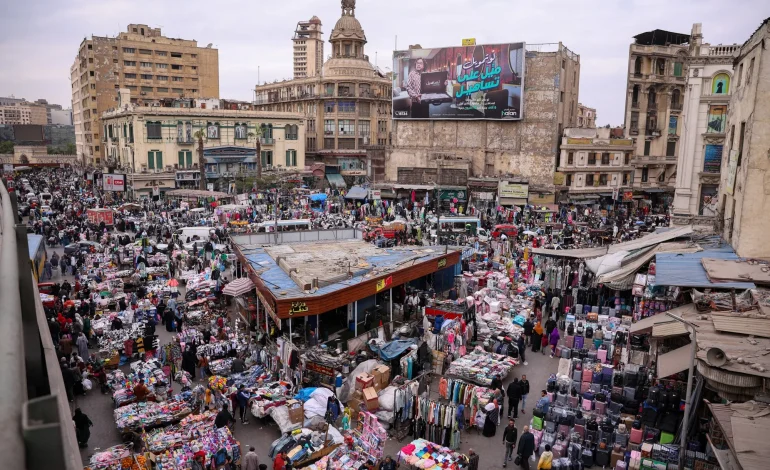The International Monetary Fund (IMF) is advising Egypt to carefully consider future interest rate cuts in light of global economic uncertainties stemming from US President Donald Trump’s tariff policies, Bloomberg reports.
Egypt implemented its first interest rate reduction in nearly five years last month after annual consumer-price growth fell to 13.6%, significantly lower than the record high of September 2023. While Trump’s trade moves have led to some adjustments in economic forecasts, many analysts still anticipate Egypt making a combined 600 to 800 basis points of cuts throughout 2025.
However, Jihad Azour, IMF Director for the Middle East, North Africa, and Central Asia, emphasized the need for vigilance in monetary policy.
“It’s very important to be vigilant on the conduct of the monetary policy,” Azour stated in an interview in Washington. “With the current shocks, we see a risk of a resumption of inflation and therefore it’s very important to maintain the right policy in order to bring inflation down” to a stable, single-digit level.
Controlling inflation has been a priority for Egyptian President Abdel-Fattah El-Sisi’s government and monetary authorities. Last year, they allowed the Egyptian pound to depreciate by nearly 40% and increased prices for fuel, electricity, and other essential items to secure foreign funding and address an economic crisis. This effort was supported by a bailout package led by the United Arab Emirates and the IMF, totaling approximately $57 billion.
In March 2024, the central bank raised interest rates to a record high on the same day it devalued the currency. The benchmark rate remained unchanged until last month, when a 225 basis-point cut reduced it to 25%.
The Egyptian regulator acknowledged that while it expects inflation to continue declining this year and next, the pace will be slower than in the first quarter of 2025. It also cited “the impact of the current China-US trade war, and an escalation of regional geopolitical conflicts” as potential risks.
Following Trump’s tariff announcements, which triggered global market volatility, Goldman Sachs Group Inc. estimated that more than $1 billion in outflows occurred from the Egyptian market earlier in April. This led to a record low for the Egyptian pound before it partially recovered. Egypt faces a baseline tariff of 10% under the current US trade policy.
Despite the recent rate cut, Egypt’s inflation-adjusted interest rate remains among the highest globally, currently around 11.5%.
Azour’s concerns were reinforced by Mohamed Maait, Executive Director for Arab states and the Maldives at the IMF, underscoring the importance of a cautious and data-driven approach to future monetary policy decisions in Egypt.










The latest news in your social feeds
Subscribe to our social media platforms to stay tuned